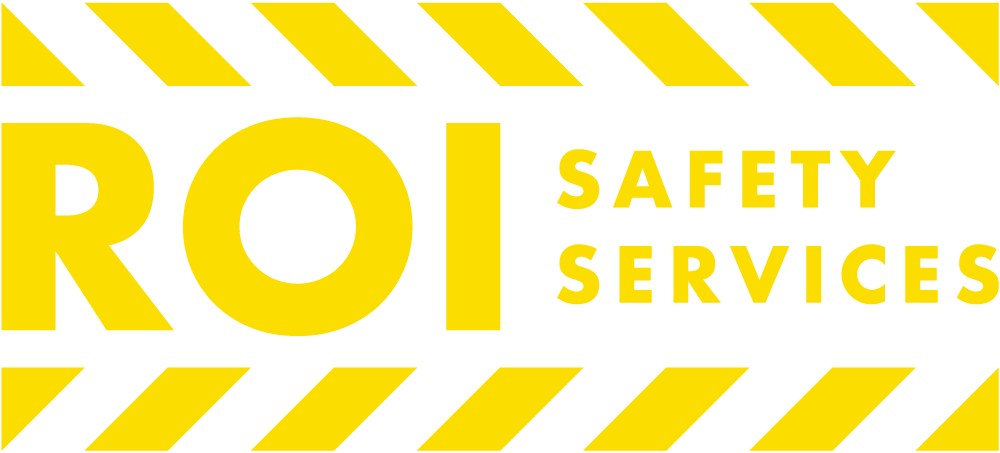
Safety’s not just a catchphrase—it’s a critical investment for businesses across various sectors. OSHA certification is the gold standard for workplace safety, ensuring employees are well-versed in health and safety protocols. In this article, they’ll uncover the top industries where OSHA certification isn’t just recommended, it’s a requirement.
From construction sites to manufacturing floors, certain industries face inherent risks that demand rigorous safety standards. They’ll dive into why OSHA certification is pivotal for these sectors and how it impacts the daily operations of businesses. Stay tuned as they explore which industries prioritize safety through OSHA certification and why it’s essential for their success.
Construction Industry
When listing Industries Requiring OSHA Certification, the construction sector stands out. It’s well-known that construction sites present a multitude of hazards, from high elevations and heavy machinery to electrical risks and exposure to harmful substances. OSHA certification plays a pivotal role in minimizing these dangers and is, therefore, not a mere formality but a stringent requirement for companies in this field.
Safety training under OSHA guidelines equips workers with the knowledge and skills necessary to navigate these risks. Such training covers a broad range of topics tailored to construction-related threats, which ensures that employees are well-prepared to handle workplace incidents. Emphasis on preventive measures, such as wearing the correct personal protective equipment and adhering to safe operating procedures, significantly mitigates the risk of job site accidents.
For employees in the construction industry, the acquisition of an OSHA certification is more than a compliance measure; it’s a critical investment in their personal safety and professional development. OSHA certification also communicates to stakeholders that a business prioritizes worker safety, which can enhance its reputation and, by extension, its profitability.
Data from the Bureau of Labor Statistics consistently highlights the construction industry as having one of the highest rates of work-related injuries and fatalities. This substantiates the demand for rigorous OSHA certification and underscores its importance:
| Year | Total Fatalities | Fatalities in Construction Industry | Percentage |
|---|---|---|---|
| 2019 | 5,333 | 1,061 | 19.9% |
| 2020 | 5,333 | 1,008 | 18.9% |
By adhering to OSHA’s standards, construction companies demonstrate their compliance and dedication to fostering a secure work environment. In an industry that continuously evolves with new techniques and materials, keeping up with the latest safety protocols through OSHA certification is not just expected—it’s essential for the wellbeing of all personnel involved.
As project complexity grows and the focus on time-efficient, cost-effective construction sharpens, the role of OSHA certification cannot be overstated. It ensures that everyone from site supervisors to hands-on laborers has the necessary training to perform their duties safely. This drives down incident rates and reduces downtime, directly benefiting project timelines and the bottom line.
Manufacturing Industry
In the landscape of industries requiring OSHA certification, the manufacturing industry stands out due to its complex machinery and high potential for workplace hazards. OSHA certification is not merely a formality; it’s a vital component of operational safety. Within the labyrinth of assembly lines, heavy equipment, and chemical processes, manufacturing workers are exposed to a plethora of risks, making the knowledge gained from OSHA training indispensable.
The certification enables workers and management to identify and mitigate safety risks effectively. OSHA’s guidelines are designed to prevent accidents, which is particularly crucial in manufacturing where a single misstep can lead to severe injuries or fatalities. Equipment malfunctions, chemical spills, and repetitive motion injuries are just a few examples of the dangers that can be minimized with proper OSHA training.
Data underscores the impact of certification on maintaining a safe workplace:
| Sector | Injury Rate (per 10,000 full-time workers) | Fatality Rate (per 100,000 full-time workers) |
|---|---|---|
| Manufacturing | 35 | 2.5 |
It’s clear that implementing OSHA’s standards can significantly reduce these rates, as workers are equipped with the skills to handle emergencies, perform risk assessments, and operate machinery with heightened awareness. Additionally, OSHA certified employees often develop a safety-first mindset that permeates through the culture of manufacturing facilities, promoting vigilance and proactive safety measures.
Through OSHA certification, manufacturing businesses not only protect their workforce but also ensure a continuity of operations, minimizing downtime due to accidents. Inspections and compliance checks become smoother processes for certified companies, which in turn can dodge the costly penalties associated with violations. In this regard, OSHA certification is not just about adhering to legal requirements; it’s about fostering an environment where safety and productivity go hand in hand.
Healthcare Industry
The healthcare industry is another critical sector where OSHA certification plays an indispensable role. Hospitals, clinics, and long-term care facilities are environments where safety is paramount, not only for the well-being of patients but also for the staff who work there. With an array of potential hazards, including exposure to infectious diseases, handling of dangerous chemicals, and the operation of sophisticated medical equipment, OSHA training is crucial to maintain a safe working environment.
Healthcare workers are trained to correctly implement safety protocols that are designed to reduce the risk of contagion and injury. OSHA certification ensures that they’re equipped with the necessary knowledge to handle biological hazards and comply with the Bloodborne Pathogens Standard. This standard is particularly rigorous due to the high-risk nature of bloodborne pathogens in healthcare settings.
Furthermore, healthcare facilities must have emergency action plans, and the staff must be prepared to execute them effectively. In situations such as chemical spills or the outbreak of a contagious disease, a well-trained team can mean the difference between controlled management and a full-blown crisis. OSHA certification provides healthcare employees with the training in hazard communication, therefore making them adept at responding to such emergencies.
Considering the prominence of workplace-related injuries and illnesses in the healthcare sector, OSHA certification is invaluable. It assists in:
- Minimizing exposure to hazardous substances
- Instituting ergonomic solutions to prevent musculoskeletal disorders
- Applying standard precautions to prevent healthcare-associated infections
In short, amidst industries requiring OSHA certification, the healthcare sector stands out. OSHA-certified professionals are the backbone of a safe healthcare system, ensuring that the environment they work in adheres to the stringent regulatory compliances, thus safeguarding their own health and that of the patients they care for.
Transportation Industry
The transportation industry stands as a critical area where OSHA certification is not just beneficial, but often a requirement due to the high-risk environment workers face daily. From logistics operators to truck drivers, ensuring safety standards are met is paramount for the wellbeing of employees and the security of cargo.
Within the transportation sector, OSHA certification provides the framework for safety protocols geared towards reducing accidents and improving emergency response times. Workers learn the importance of vehicle maintenance, secure cargo loading, and the proper handling of hazardous materials, which are all essential components of a robust safety program in this industry.
Forklift operations, another significant aspect of the transportation industry, also come with risks that necessitate specific OSHA-certified training. This training helps operators understand the dynamics of safely maneuvering heavy machinery, thereby substantially decreasing the likelihood of workplace incidents.
Furthermore, transportation companies that invest in OSHA certification for their employees often see a reduction in insurance premiums due to the lower accident rates. These cost savings, combined with the promotion of a culture of safety, demonstrate how OSHA certification is a key ingredient in responsible industry practice.
It’s crucial to recognize that industries requiring OSHA certification, particularly in the realm of transportation, are subject to stringent regulatory oversight. Compliance with these regulations is not merely about avoiding legal repercussions but also about affirming a company’s commitment to excellence in safety standards.
Significant too is the role of OSHA certification in disease prevention in the industry. Drivers and crew members are trained to handle biological hazards they might encounter, ensuring they can safeguard themselves and others from potential health risks associated with their job.
As the transportation industry evolves with advancements in technology and new regulatory challenges, the importance of staying current with OSHA certification cannot be overstated. This commitment to safety education fosters a safer working environment and ultimately contributes to the industry’s operation’s efficiency and reliability.
Oil and Gas Industry
The oil and gas sector stands as a major player among industries requiring OSHA certification, given its inherently hazardous work environment. The extraction and processing of oil and gas involve high-risk tasks such as drilling, refining, and handling explosive materials. OSHA certification plays a pivotal role in educating employees on best safety practices, ensuring they’re adept at identifying and mitigating potential dangers.
Workers in this sector are often exposed to extreme temperatures, heavy machinery, and flammable substances. As a result, OSHA’s stringent safety guidelines and training are crucial components in minimizing workplace incidents. Not only does the certification aim to safeguard employees, but it also strives to uphold the integrity of the costly equipment involved in daily operations.
In the oil and gas industry, some specific aspects covered by OSHA certification include:
- Hazard recognition and control
- Fire safety and prevention
- Emergency response and preparedness
- Safe handling of chemicals and hydrocarbons
Employers who invest in OSHA certification for their workforce not only foster a safer environment but also demonstrate a strong commitment to regulatory compliance. This dedication to safety can boost employee morale, increase productivity, and can often lead to a favorable reputation within the industry.
Furthermore, as the industry is subject to strict environmental and safety regulations, OSHA certification is essential for companies looking to avoid costly fines and legal repercussions. Comprehensive training equips employees with the necessary skills to operate within legal safety standards, reducing the risk of environmental incidents that can lead to significant penalties.
The rise in advanced technologies and automation within the sector underscores the need for ongoing OSHA training. As operations become more sophisticated, the demand for workers skilled in current safety protocols continues to grow. Therefore, maintaining up-to-date OSHA certification ensures that employees are well-versed in the latest safety procedures and technologies.
Conclusion
OSHA certification stands as a cornerstone of safety in the workplace, particularly in sectors where risks are part of the daily grind. It’s clear that the healthcare, transportation, and oil and gas industries benefit immensely from the rigorous safety standards and training that OSHA certification provides. By equipping workers with the knowledge to manage and mitigate hazards, these certifications not only save lives but also enhance the overall productivity and efficiency of operations. As industries continue to evolve, the importance of staying abreast with OSHA’s evolving guidelines cannot be overstated. It’s an investment in safety that pays dividends in the form of a healthier workforce and a more robust bottom line.
Frequently Asked Questions
Why is OSHA certification important in the transportation industry?
OSHA certification is vital in the transportation industry to ensure worker safety in a high-risk environment. It provides guidelines for reducing accidents and improving emergency response times, enhancing the overall safety of the workplace.
How does OSHA certification contribute to disease prevention?
OSHA certification educates employees on maintaining hygiene and safety protocols, thereby playing a critical role in preventing the outbreak and spread of diseases in various industries.
Is staying current with OSHA certification necessary as industries evolve?
Yes, it is essential to stay current with OSHA certification as industries evolve to keep up with new safety challenges, technologies, and regulations, ensuring that safety practices remain effective and relevant.
What role does OSHA certification play in the oil and gas industry?
In the oil and gas industry, OSHA certification provides education on hazard recognition, fire safety, emergency response, and chemical handling, which are crucial for maintaining a safe work environment and ensuring regulatory compliance.
How can OSHA certification impact employee morale and productivity?
OSHA certification can lead to a safer workplace, which boosts employee morale by showing the company’s commitment to staff well-being. This, in turn, can increase productivity as employees feel more secure and valued.
Can OSHA certification help companies financially?
Yes, OSHA certification can help companies avoid costly fines and legal repercussions that arise from non-compliance with safety regulations, and it can also potentially reduce incidents that lead to financial loss due to workplace accidents.

